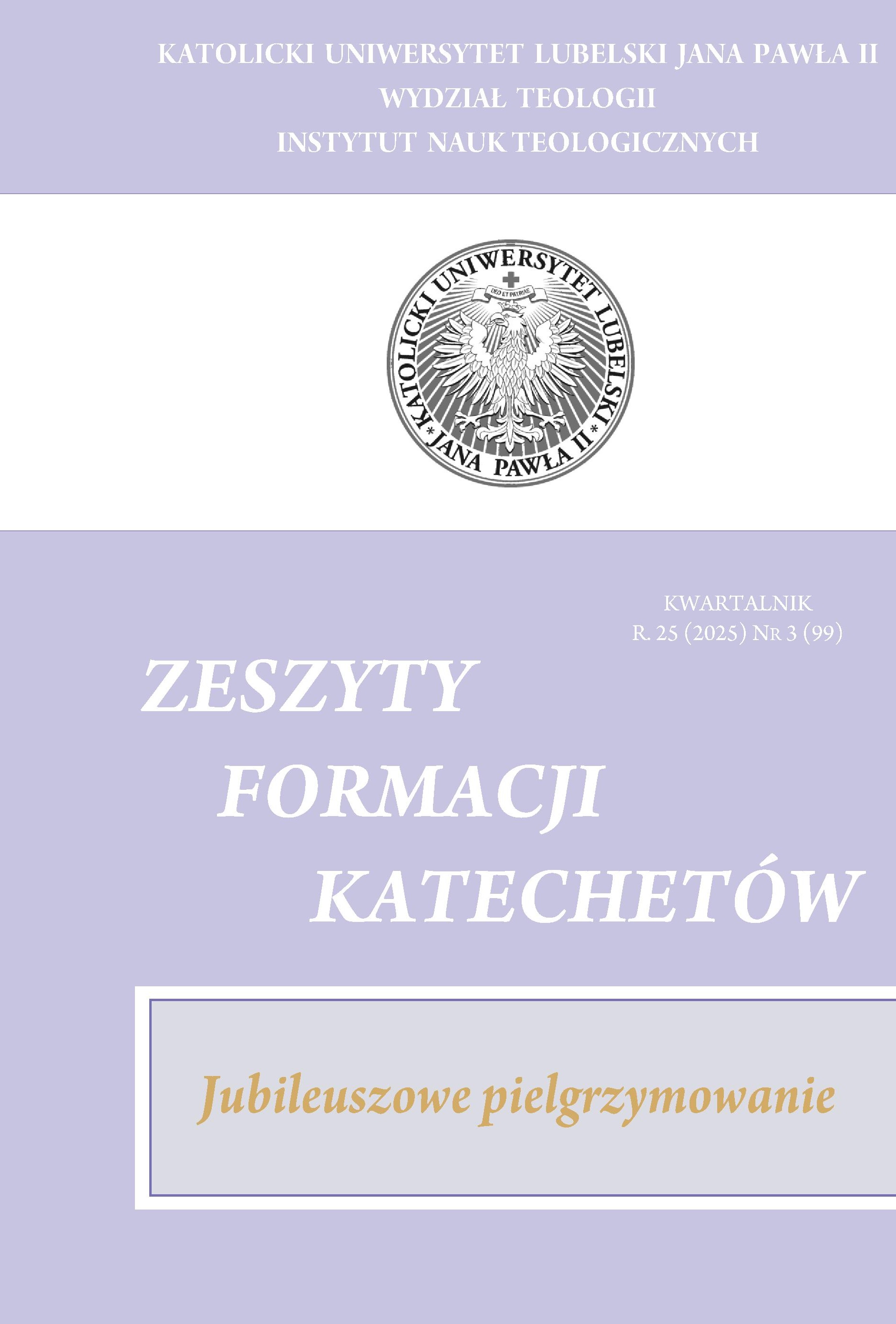Forgiveness, penance and reconciliation
Keywords:
reconciliation, penance, forgiveness, Jesus Christ, confession, sacrament, joy, happiness, responsibility, Church, communityAbstract
The subject of the reflection is education for forgiveness, penance and reconciliation. To sum up the reflection conducted so far, it is worth trying to answer the questions about the relationship between forgiveness, penance and reconciliation. Forgiveness cannot be identified with reconciliation, because it is sometimes granted to a person who does not express remorse and continues to pose a threat to both the victim and others. The lack of reconciliation can also be used as a means to induce repentance in the perpetrator, that is, de facto as a means of expressing forgiveness oriented towards the good of the perpetrator. At the same time, forgiveness and reconciliation are closely related. Their relationship can be compared to the relationship between forgiveness and repentance, considered the goal of forgiveness. Similarly, reconciliation can be understood as the goal of forgiveness and should aim at it. However, this goal is not always achieved; appropriate formation is needed. Forgiveness depends on sacrifice, while reconciliation requires that both parties desire to build a relationship, and repentance, which is to educate and teach responsibility for the future. Reconciliation requires mutual maturity. Returning to the parable of the prodigal son, it can be said that it is a good example of this dependence. The son's departure from home did not decide to destroy the relationship between father and son, but it gave rise to the son's awareness of the importance of this relationship. This relationship had been disappearing for the son long before. Leaving home was merely an expression of the fact that the parental home was not valued by the son at a given moment in his life. However, the son's maturity was necessary for reconciliation - he had to want it, he had to see the value of staying in his father's house, and what's more, there was also a dimension of repentance, when the son, eating the pages, did so knowing that in his father's house the servants ate better than he did. The son's abolition earlier did not make sense, because he would have left again. This story ends happily. The son matured through penance and came to reconciliation and forgiveness. Let us take care that in our daily lives there appears a desire for a life enriched with forgiveness, penance and reconciliation.
References
„Biblia Tysiąclecia” – Pismo Święte Starego i Nowego Testamentu, Poznań 2003.
Buksik D., Sakrament przebaczenia i pojednania: rola spowiednika i penitenta na drodze ku dojrzałości religijnej i osobowościowej, „Seminare” 2007, nr 24.
Dudziak U., Rodzina pierwszym miejscem katechezy, w: Miejsca katechezy. Rodzina. Parafia. Szkoła, red. S. Kulpaczyński, Lublin 2005.
Franciszek, Misericordie vultus, Watykan, 13 marca 2015 r.
Jan Paweł II, Catechesi tradendae, Watykan, 16 października 1979 r.
Jan Paweł II, Przemówienie wygłoszone do Penitencjarni Apostolskiej, „L’Osservatore Romano” 1993, nr 5-6(153), wyd. pol.
Jan Paweł II, Reconciliatio et paenitentia, Watykan, 2 grudnia 1984 r.
Jankowski S., Praktyka pokutna w Starym Testamencie, „Seminare” 2007, nr 24, s. 22.
Komisja Wychowania Katolickiego Konferencji Episkopatu Polski, Program nauczania religii rzymskokatolickiej w przedszkolach i szkołach, Kraków 2010, s. 45.
Konferencja Episkopatu Polski, Dyrektorium katechetyczne Kościoła katolickiego w Polsce, Kraków 2001.
Misiniec S., Dar nawrócenia, Kraków 1998.
Peck S., Bezlitosna łaska, Warszawa 1994.
Płatek J.S., Sprawowanie sakramentu pokuty i pojednania, Częstochowa 2001.
Pokuta, w: Uniwersalny słownik języka polskiego, red. B. Dunaj, Warszawa 2007.
Szpet J., Wychowanie do pokuty i pojednania, „Colloqua Theologica Ottoniana” 2016, nr 2.
Tokarski S., Od przebaczenia do pojednania – psychologiczne uwarunkowania pojednania z Bogiem i ludźmi, w: Pozwólcie pojednać się z Bogiem, red. J. Kręcidło, Kraków 2007.
Downloads
Published
How to Cite
Issue
Section
License
Copyright (c) 2025 The Journals of Catechetical Formation

This work is licensed under a Creative Commons Attribution-NonCommercial-NoDerivatives 4.0 International License.

